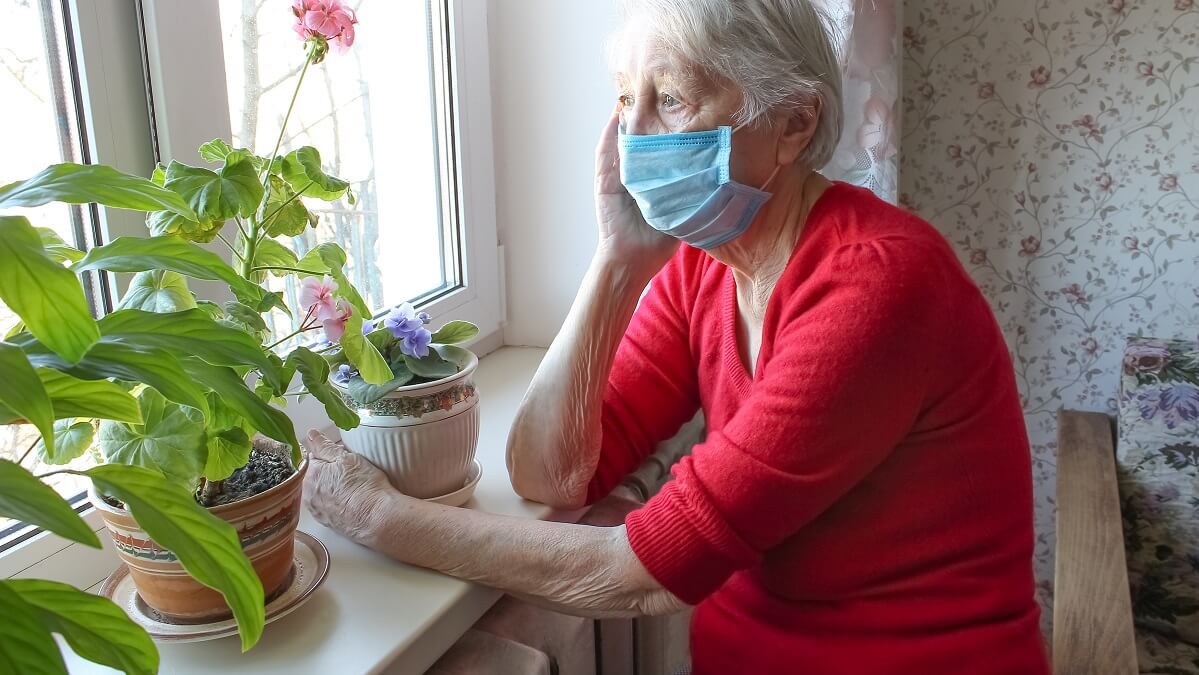Developing long COVID symptoms is much more likely in those lacking vitamin D, research reveals.
One of the worst aspects of the COVID pandemic has been the emergence of a lingering, long-term version on the infection dubbed ‘long COVID’.
This is where COVID symptoms such as extreme fatigue, shortness of breath, heart palpitations and problems with memory and concentration persist for more than three months after an initial COVID infection.
The Australian Institute of Health and Welfare estimates around 5 to 10 per cent of COVID cases in Australia go on to develop into long COVID. Worse still, 50 to 70 per cent of patients admitted hospital when initially infected will go on to develop long COVID.
So far, several key risk factors have been identified for long COVID including high blood pressure, chronic lung disease, diabetes, and obesity.
Now, a study published in The Journal of Clinical Endocrinology & Metabolism has identified a vitamin D deficiency as another key risk factor.
The study looked at 100 COVID hospital admissions from an outpatient clinic at the San Raffaele Hospital in Milan, Italy. Fifty of those patients were diagnosed with long COVID, while the other 50 were not.
Each individual in one group was matched one to one with an individual in the other group, taking into account the severity of their illness from COVID-19, as well as age, sex, and any pre-existing chronic health conditions.
Researchers assessed vitamin D levels in participants upon release from the hospital and again after a six-month follow up period, at which time they were also screened for symptoms of long COVID.
By comparing the matched pairs of individuals, the researchers observed that those who had long COVID had lower levels of vitamin D than those who did not have the condition.
They also found no observable differences between matched participants other than their vitamin D levels, strongly suggesting vitamin D deficiency was driving their long COVID symptoms.
Apart from apparently protecting against long COVID, vitamin D is necessary for your body to absorb calcium, magnesium and phosphate, as well as many other biological functions, particularly relating to bone health.
How much vitamin D do I need?
Humans get most of their vitamin D from sunlight. Ultraviolet rays cause a chemical reaction in your skin to synthesise a form of cholesterol, which your body then uses to make vitamin D3.
Dr Andrea Giustina, lead author of the study, told Medical News Today that vitamin D’s immune-boosting properties may be a possible mechanism that prevents long COVID developing.
“Extra-skeletal effects of vitamin D are well known,” he says.
“Among those, the positive effects on the immune system can be thought to play a role in this connection.”
The Australian government recommends a vitamin D dietary intake for babies, children, teenagers and adults aged 19–50 years of 5μg (micrograms) of vitamin D per day.
Adults aged 51-70 years should have 10μg of vitamin D per day, while older Australians aged over 70 years should have 15μg of vitamin D per day.
Dietary vitamin D is found in many fish products, including salmon, sardines, tuna and cod liver oil. If seafood isn’t your thing then egg yolks, mushrooms and orange juice are suitable alternatives.
But you don’t need to eat your vitamin D at all. In summer, you only need to spend a few minutes mid-morning or mid-afternoon outdoors (when the UV index is 3 or more) to get enough vitamin D. Be sure to wear sunscreen and a hat since UV radiation causes skin cancer.
In the autumn and winter months, when the UV index is lower than 3, you should aim to do outdoor activities in the middle of the day. Some skin needs to be uncovered (for example, your arms and face) to get your dose of vitamin D.
Have you had long COVID? Do you get enough vitamin D? Let us know in the comments section below.
Also read: The truth about vitamin D supplements and bone health


Dr. John Campbell on YouTube has been advocating Vit. D for Covid for years. But it takes a long time for officialdom to ‘get it’! Something to do with ‘narratives’ perhaps?
No. Everything to do with solid science.